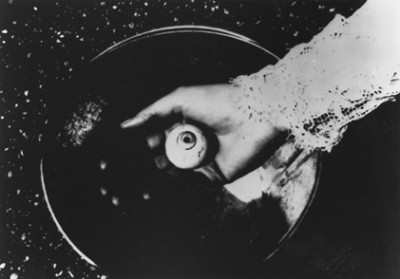
1995-1998
A hybrid of DeSade and Dali, House of Pain is a nightmare that takes place between sleep and death where the performers appear as mute hallucinations. House of Pain features a hallucinogenic blend of the domestic and perverse. Hoolboom’s unerring cinematography fascinates and fetishizes, never straying far from the surface of his subjects, converting them into dark objects of magic and transformation. They are also profound testaments of the body at its limits, filled with a harrowing dream vision whose fantastical vantages lend the body a rare grace.
“The Canadian avant-garde has found its Salo, and its name is House of Pain. Prolific, hugely talented Toronto/Vancouver/Toronto experimental filmmaker Mike Hoolboom’s new feature must be the most transgressive Canadian film ever made. Shot in black-and-white and printed in colour to achieve its luscious sepia-like tones, House of Pain‘s four parts simultaneously seems to celebrate and be revolted by that House of Pain in which we all reside: the body. Hypnotic, hallucinatory, entirely wordless, and completely beyond the pale… the film reads like a nightmarish, nocturnal-emission compendium of avant-garde, cinema-of-shock history.” Jim Sinclair, Pacific Cinematheque
Rental and Sales
Single Screening Rental | $240.00 |
Educational Purchase DVD (Bluray +$15) | $260.00 |
5 Year Educational Streaming License, Digital File with DVD Circulation Copy | $550.00 |
Gallery Exhibition and Installation, complete Media Request form for quote | |
Institutional Archival Acquisition, complete Media Request form for quote |
Curators and programmers, please contact distribution@vtape.org to receive a login and password to preview Vtape titles online.
Screening and exhibition rentals and archival acquisitions include public performance rights; educational purchases or licenses include rights for classroom screenings and library circulation. When placing an order the customer agrees to our general online terms and conditions. Payment (or a purchase order number) and a signed licensing agreement must be received before media can be shipped to the client.
Critical Writing
by . The Canadian Film Institute, 2025.
by . Now, Oct. 8, 1998, v. 18, no. 6.
